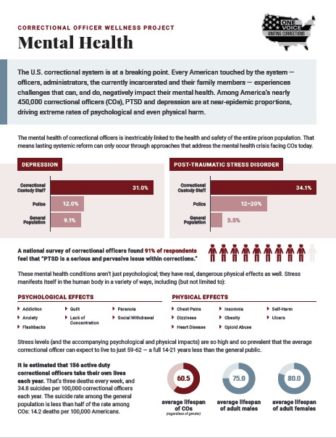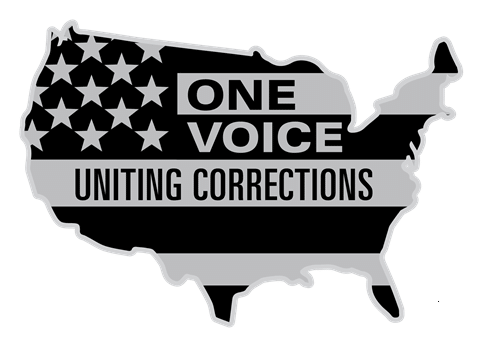The U.S. correctional system is at a breaking point. Every American touched by the system —  officers, administrators, the currently incarcerated and their family members — experiences challenges that can, and do, negatively impact their mental health. Among America’s nearly 450,000 correctional officers (COs), PTSD and depression are at near-epidemic proportions, driving extreme rates of psychological and even physical harm.
officers, administrators, the currently incarcerated and their family members — experiences challenges that can, and do, negatively impact their mental health. Among America’s nearly 450,000 correctional officers (COs), PTSD and depression are at near-epidemic proportions, driving extreme rates of psychological and even physical harm.
The mental health of correctional officers is inextricably linked to the health and safety of the entire prison population. That means lasting systemic reform can only occur through approaches that address the mental health crisis facing COs today.
A national survey of correctional officers found 91% of respondents feel that “PTSD is a serious and pervasive issue within corrections.”
These mental health conditions aren’t just psychological; they have real, dangerous physical effects as well. Stress manifests itself in the human body in a variety of ways, including (but not limited to):
| Psychological Effects | Physical Effects |
| Addiction Anxiety Flashbacks Guilt Lack of Concentration Paranoia Social Withdrawal | Chest Pains Dizziness Heart Disease Insomnia Obesity Opioid Abuse Self-Harm Ulcers |
Stress levels, and the accompanying psychological and physical impacts, are so high and so prevalent that the average correctional officer can expect to live to just 59-62 — a full 14-21 years less than the general public.
It is estimated that 156 active duty correctional officers take their own lives each year. That’s three deaths every week, and 34.8 suicides per 100,000 correctional officers each year. The suicide rate among the general population is less than half of the rate among COs: 14.2 deaths per 100,000 Americans.

No comment yet, add your voice below!